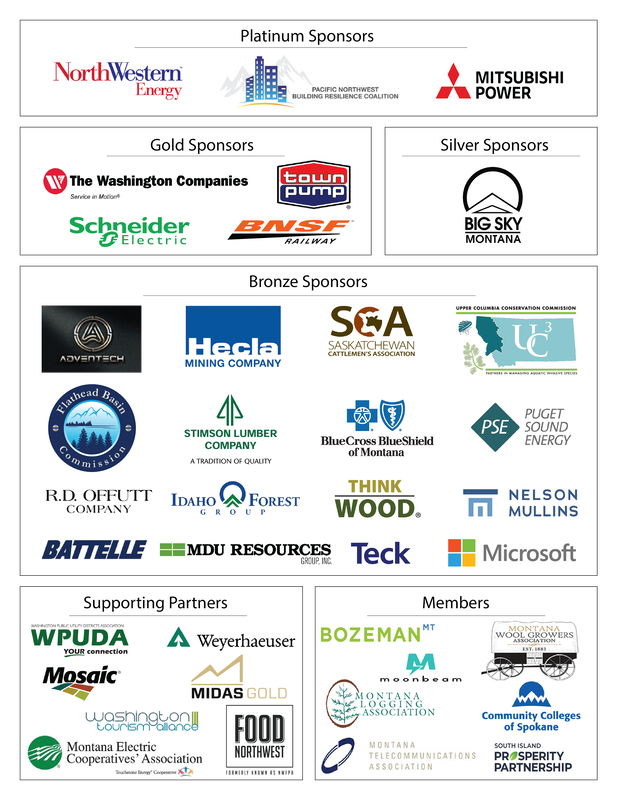Recent Webinars
Achieving Resilience and Climate Targets: Update of Cement and Concrete Pathway to Carbon Neutrality
May 28, 2024 | 9 am Pacific
May 28, 2024 | 9 am Pacific
As governments move toward rebuilding resilient infrastructure and economies we must ensure that those plans shape our current and future economies in ways that are clean, green, safe, and above all resilient. With consideration of state and federal “Buy Clean” legislation, building material manufacture must adapt to stricter greenhouse gas emission regulations. The environmental impact of those materials during manufacture, while in the use phase, the end-of-life phase and beyond (LIFE-CYCLE), will play an important role in attaining our GHG goals going forward.
Cement and concrete provide resilience to the effects of climate change and resultant disasters while reducing CO2 emissions and attaining GHG reduction targets. Reducing GHG is an opportunity for a profound paradigm shift to a more sustainable economy that works for both the planet and its inhabitants. As the most widely used material on earth, after water, concrete is fundamental to the world around us. Cement and concrete products will play a vital role in addressing the effects of climate change.
Constructing and operating our built environment makes up a significant part of our economy, our resource consumption, and its environmental impact. How will environmental considerations and construction practices in the future affect what we build and how we build? What are the cement and concrete industries doing to reduce CO2 and GHG emissions to address climate change? The circular economy, biodiversity crisis and carbon challenge, together in a changing world, all impact on the answer.
Speakers:
Cement and concrete provide resilience to the effects of climate change and resultant disasters while reducing CO2 emissions and attaining GHG reduction targets. Reducing GHG is an opportunity for a profound paradigm shift to a more sustainable economy that works for both the planet and its inhabitants. As the most widely used material on earth, after water, concrete is fundamental to the world around us. Cement and concrete products will play a vital role in addressing the effects of climate change.
Constructing and operating our built environment makes up a significant part of our economy, our resource consumption, and its environmental impact. How will environmental considerations and construction practices in the future affect what we build and how we build? What are the cement and concrete industries doing to reduce CO2 and GHG emissions to address climate change? The circular economy, biodiversity crisis and carbon challenge, together in a changing world, all impact on the answer.
Speakers:
- Dr. Andrew Minson, Concrete and Sustainable Construction Director, Global Cement and Concrete Association
- Rick Bohan, Senior Vice President, Sustainability, Portland Cement Association
- Adam Auer, President and CEO, Cement Association of Canada
A full list of past PNWER and PNWER Partner Webinars here. Information and presentations from PNWER COVID-19 Recovery calls can be found here.
Here in the Pacific Northwest we are stronger by working closely together, and our relationships are intact because of the ongoing partnerships in every major sector of the economy, and in state, provincial, territorial, and tribal governments.
- Senator Arnie Roblan, OR
PNWER Past President 2017 - 2018
Sponsorship information available here
Thank you to our Partners!
Code of Conduct
It is the policy of the Pacific NorthWest Economic Region (PNWER) that all participants, including attendees, staff, volunteers, and all other stakeholders at PNWER meetings will conduct themselves in a professional manner that is welcoming to all participants and free from any form of discrimination, harassment, or retaliation. To make it possible for true collaboration, creativity, innovation, and idea exchange to thrive we are committed to facilitating a welcoming, respectful, and professional community for all.
Participants will avoid any inappropriate actions or statements based on individual characteristics such as age, race, ethnicity, sexual orientation, gender identity, gender expression, marital status, nationality, political affiliation, ability status, educational background, or any other characteristic protected by law. Disruptive or harassing behavior of any kind will not be tolerated. Harassment includes but is not limited to inappropriate or intimidating behavior and language, unwelcome jokes or comments, and unwanted touching or attention.
Inappropriate behavior will not be tolerated. PNWER reserves the right to refuse entry to or remove any party from the event at any time. Sanctions may range from verbal warning, to ejection from the meeting without refund, to notifying appropriate authorities. If you witness or are subjected to inappropriate behavior or have any other concerns, notify a PNWER staff member as soon as possible.
It is the policy of the Pacific NorthWest Economic Region (PNWER) that all participants, including attendees, staff, volunteers, and all other stakeholders at PNWER meetings will conduct themselves in a professional manner that is welcoming to all participants and free from any form of discrimination, harassment, or retaliation. To make it possible for true collaboration, creativity, innovation, and idea exchange to thrive we are committed to facilitating a welcoming, respectful, and professional community for all.
Participants will avoid any inappropriate actions or statements based on individual characteristics such as age, race, ethnicity, sexual orientation, gender identity, gender expression, marital status, nationality, political affiliation, ability status, educational background, or any other characteristic protected by law. Disruptive or harassing behavior of any kind will not be tolerated. Harassment includes but is not limited to inappropriate or intimidating behavior and language, unwelcome jokes or comments, and unwanted touching or attention.
Inappropriate behavior will not be tolerated. PNWER reserves the right to refuse entry to or remove any party from the event at any time. Sanctions may range from verbal warning, to ejection from the meeting without refund, to notifying appropriate authorities. If you witness or are subjected to inappropriate behavior or have any other concerns, notify a PNWER staff member as soon as possible.


